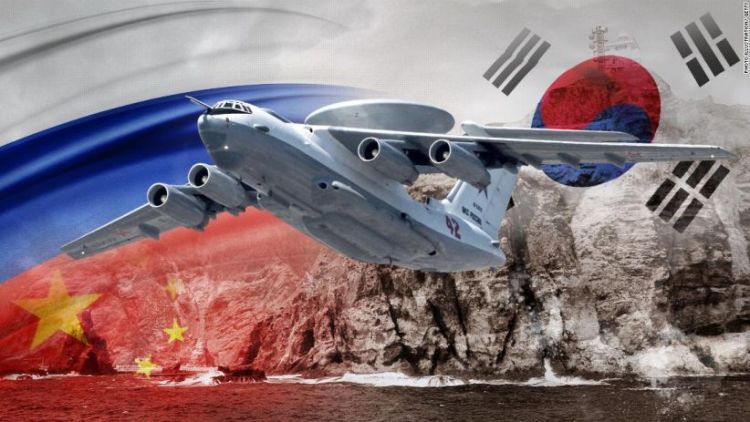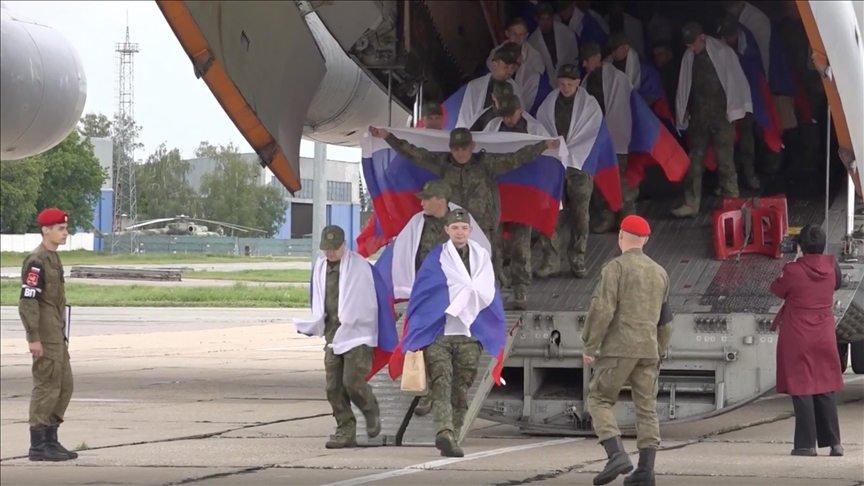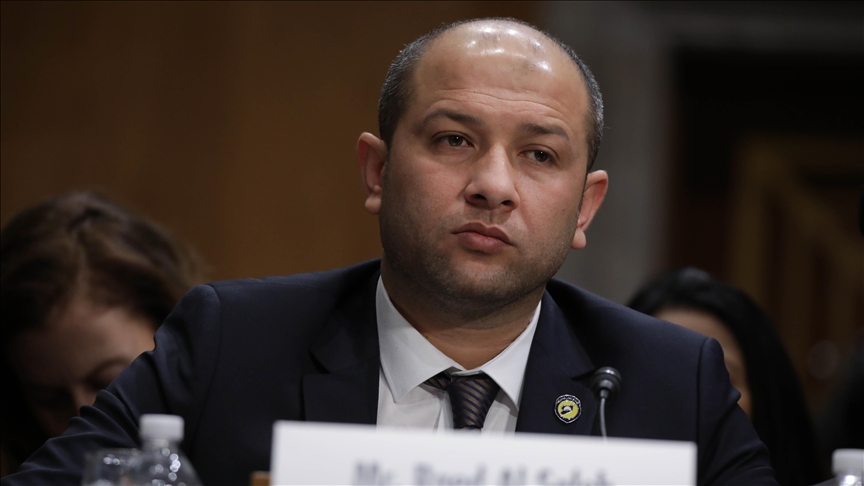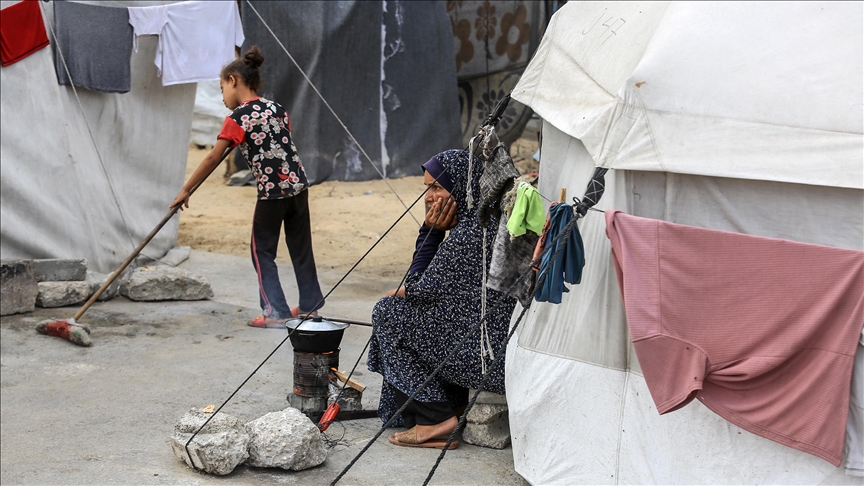While Japan and South Korea may not agree on who owns a cluster of tiny, rocky islands off their coastlines, they do agree that Russian bombers shouldn't be flying above them.
The remote Pacific outcrop, called the Dokdo Islands in South Korea and the Takeshima Islands in Japan, made headlines Tuesday following an alleged violation of the airspace above them by a Russian jet.
South Korea said its fighter jets fired hundreds of warning shots at the Russian A-50 radar and intelligence plane after officials in Seoul say it twice entered the 12-nautical-mile limit that South Korea considers its airspace around the islands.
Moscow has furiously denied Seoul's account of the encounter, claiming that South Korean military jets recklessly intercepted two of its bombers during a first-of-its-kind military exercise with China over neutral waters.
Two Chinese long-range bombers were flying with the Russians as part of a joint exercise, which Beijing said complied with international law. A Russian general denied that any warning shots were fired and said the involvement of the A-50 was only to support the overall mission.
The islands may be just the wedge Moscow needs to further splinter the United States' most important security relationship in Asia, and distract Washington from other parts of the world currently higher on Russia's agenda.
Read: US deployment of weapons in space will lead to new stage of arms race - Lavrov
Like South Korea, Japan also scrambled fighter jets to intercept the Russian and Chinese warplanes. And like South Korea, Japan agreed the Russian A-50 airborne warning and control jet (AWACS) had violated airspace. But that's where the similarities end.
As far as Japan is concerned, the islands belong to Japan. Therefore, according to Japanese officials, Russian jets had entered Japanese airspace -- and what's more, South Korean fighter jets had no business firing aircraft cannons over Japanese territory.
The highly contentious incident comes as Washington is trying to bring together South Korea and Japan -- its two closest Asian allies -- as partners to push back against increasing Chinese influence in Asia, the Pacific and beyond.
It also comes as Japan and South Korea are embroiled in a series of disputes, including a widening trade row over materials to make memory chips for cell phones and a spat stemming from colonial-era reparations.
Which takes us back to the islands -- and a dispute which dates back centuries.
A dispute dating to the 17th century
A Japanese Ministry of Foreign Affairs primer on the islands claims they have been part of Japan since the 1600s, when ships were sent there to hunt sea lions and harvest abalone.
Formal incorporation into Japan came in 1905, when the Japanese Cabinet, seeing a burgeoning business in sea lions, made the islands part of Shimane prefecture to license and tax the hunt.
Additionally, according to the primer, Washington recognized the islands as Japanese in the 1952 Treaty of San Francisco, which established the post-World War II order in Asia. The US specifically excluded the islands from other territories it said Japan, which occupied the Korean Peninsula in World War II, should return to Seoul, the primer says.
South Korea says its claims go back hundreds of years before Japan's. The Dokdo Research Institute in Seoul quotes texts from the 15th century that refer to the islands as Korean. The Dokdo website adds that Japanese Navy maps from the late 1800s show the islands as Korean. And in 1906, Korea formally made the islands part of Gyeongsangnam-do province, it says.
South Korea cemented its claim for control over the islands in the 1950s, when it stationed a rotating contingent of semi-permanent armed guards there.
The islands, which are largely barren and uninhabited, have continued to divide the two countries throughout the postwar period.
A tool for Russia
Japan and South Korea have not been able to resolve the Dokdo-Takeshima dispute via any international legal forum, the basis of what Washington calls "the rules-based order" that governs how the US approaches conflicts, for instance in the South China Sea or Crimea.
If they can't work out their own dispute, can they really help Washington make the case for the "rules-based order" elsewhere?
And analysts say that's a wedge that Russia could exploit.
"The Russian intention may have been to discourage America's Asian allies from working closely with the United States in other parts of the world that could affect Russian interests," said Timothy Heath, a senior analyst in Washington with the Rand Corp. think tank.
Read: North Korean missile test is a 'solemn warning' to South Korea
One such example is North Korea, which on Thursday launched two missiles toward the East Sea, also called the Sea of Japan. The first flew approximately 430 kilometers (265 miles), while the second flew 690 kilometers (428 miles), South Korean officials said.
Thursday's launches came as US national security adviser John Bolton -- a noted hawk on North Korea -- visited South Korea to discuss bilateral strategic issues.
"Bolton was scheduled to talk mainly about including the Asian allies in efforts to monitor and pressure Iran, something Russia opposes," Heath said.
Conflict between Japan and South Korea could complicate those discussions and force the US to spend more time mediating between the Asian allies and preparing responses to the incident, said Heath.
Big Russian intelligence haul
The incident could also have provided an intelligence bonanza for Russia, another analyst said.
The Russian A-50 that is alleged to have flown into disputed airspace is equipped with an array of radars and monitoring instruments which could potentially detect key details of how South Korea could deploy and communicate with its forces in a full-blown combat situation
Russian A-50 AWACS command and control aircraft as photographed by Japanese jets on Tuesday.
"The A-50 will have been collecting electronic signals intelligence from the radio communications, the radars on the intercepting aircraft, the ground-based air surveillance radars and the command and control network," said Peter Layton, a former Royal Australian Air Force pilot and fellow at the Griffith Asia Institute.
"This mission will have given (Russia) a comprehensive map of the ROK national air defense system," he said.
Read: China expresses "deep concern" over US Navy warship in Taiwan
Other analysts point to another message to Washington from Tuesday's incident.
"The most significant strategic aspect of this incident is it highlights a new and higher level of Sino-Russian military cooperation," said Carl Schuster, a former US Navy captain and former director of operations at the US Pacific Command's Joint Intelligence Center.
Artyom Lukin, an international relations scholar at Far Eastern Federal University in Vladivostok, said Moscow and Beijing have been steadily ramping up what he described as a "quasi-alliance." He described the incident as one designed to showcase their shared power, "sending a message to Tokyo, Seoul and Washington."
Lukin called the Russia-China mission "bold and provocative."
Something Washington has been dreading
The analyses of Schuster and Lukin point to something that Washington has long feared -- or even predicted -- a closer alliance between two allies traditionally at odds with the US.
"China and Russia are more aligned than at any point since the mid-1950s, and the relationship is likely to strengthen in the coming year," Director of National Intelligence Dan Coats told a US Senate committee in January.
"As China and Russia seek to expand their global influence, they are eroding once well-established security norms and increasing the risk of regional conflicts, particularly in the Middle East and East Asia," Coats told the senators
.That's what the world saw Tuesday morning over some tiny islands that few people outside of South Korea and Japan had even heard of










